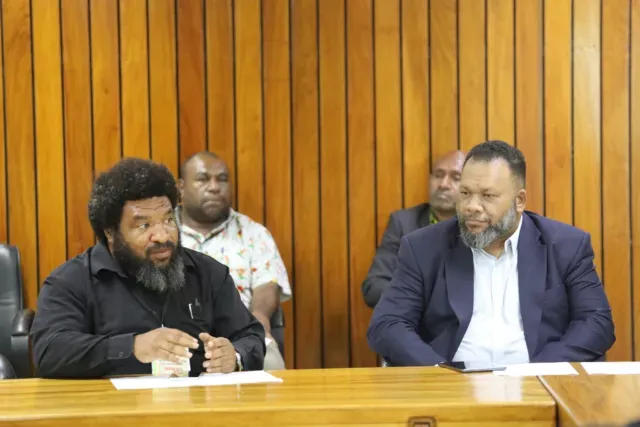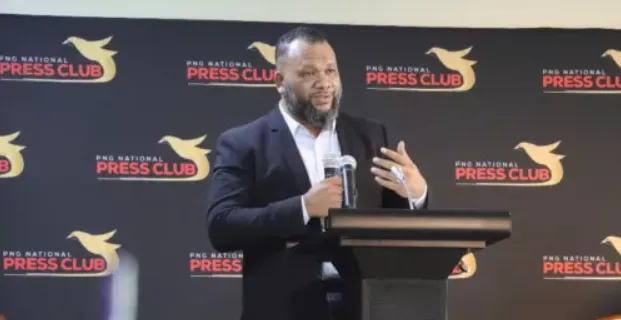Media Council Urges Prime Minister Marape to Address Political Interference in State-Owned Media
The Media Council of Papua New Guinea has issued a public call to Prime Minister James Marape and his government to urgently investigate recent suspensions and terminations of personnel in media outlets owned by state-run Telikom PNG Limited.
The Council stressed the importance of protecting the professional rights of media workers and ensuring an environment where news organizations can operate independently and in accordance with the law.
Two widely reported cases have raised public alarm: one involving Kalang Advertising Limited (owner of FM100 radio) and the other involving Media Niugini Limited (operator of EMTV, the country’s leading television station).
FM100’s well-known talk show host Culligan Tanda was suspended without pay for three weeks after inviting East Sepik Governor Allan Bird to comment on current affairs during a live broadcast. After serving his suspension, Tanda was issued a formal termination letter signed by CEO Bill Wartovo.
In a separate incident, former EMTV journalist James Guken was abruptly dismissed after publishing an online article quoting statements from opposition MPs. The termination came without prior notice or due process.
Media Council Chairman Neville Choi stated these cases are not isolated but rather part of a growing pattern of suppression within state-owned media institutions. He recalled his own removal in 2019 for refusing a directive from Telikom PNG’s then-CEO to terminate two senior newsroom staff. The contentious report at that time covered an incident during the 2018 APEC summit in which the New Zealand Prime Minister declined to use a luxury vehicle provided by the PNG government—coverage that was deemed “damaging to the government’s image.”
In 2022, EMTV made headlines again when 24 members of its newsroom were fired after collectively protesting mismanagement within the organization.
Choi noted that in every instance, the respective companies cited “internal investigations” as justification, but never disclosed the findings—with all cases ultimately ending in termination of the media personnel involved.

“Freedom of the press is a cornerstone of democracy,” Choi said. “No one has the right to interfere with news reporting for political purposes, let alone silence frontline journalists for personal gain.”
Citing Section 5 of the Organic Law on the Independent Commission Against Corruption (OLICAC), Choi emphasized that abuse of power constitutes corruption, and as state-owned enterprises, media institutions fall under the definition of public bodies. Their executives, therefore, should be treated as public officials and held accountable accordingly.
The Media Council called on the Independent Commission Against Corruption (ICAC) to investigate whether the recent dismissals involved procedural abuse or constituted corrupt practices, and to take legal action if necessary.
The Council pledged to monitor the cases of Tanda and Guken, and reaffirmed its support for all journalists committed to professional ethics and balanced reporting.
Finally, the Council’s Executive Committee, together with the leadership of PNG’s mainstream media organizations, issued a united appeal:
“End political interference and professional repression in the media sector—preserve the independence of Papua New Guinea’s press and uphold social justice.”


